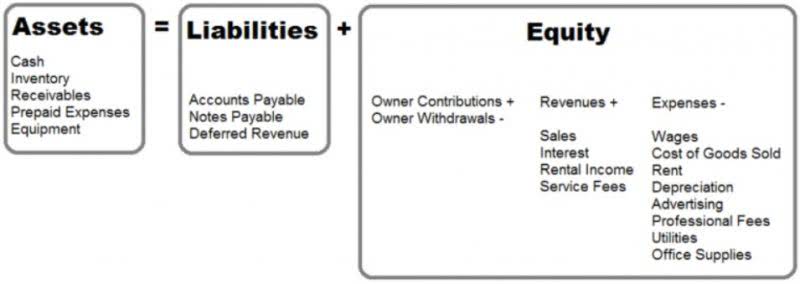+86-(0)768-6925905
Content

Cash basis accounting is easy to implement, maintain and understand. And if you maintain your books on a cash basis, there will be little difference between your financial statements and your tax returns. Accrual accounting requires companies to record sales at the time in which they occur. Unlike the cash basis method, the timing of actual payments is not important. Since cash basis accounting is focused on cash transactions, it highlights other differences between the two accounting methods. For instance, cash accounting doesn’t recognize accounts payable or accounts receivable, which are important parts of accrual accounting.
The business records the income on Tuesday since it was received that day. Although it’s simpler, cash basis accounting does have some limitations. Accrual accounting highlights the fact that some cash payments for goods or services may never be received from a consumer. As a small business owner, it’s crucial to know how much cash you have on hand. Since you record money as it enters or leaves your business, you get an accurate picture of your cash levels.
Business Class
If a business has inventory, the IRS usually requires the accrual basis accounting for recording it. There are, however, certain exceptions when businesses with inventory can used cash basis accounting. Bethany’s Flowers operates under the cash-basis accounting method. The shop https://www.bookstime.com/articles/what-is-form-1065 receives roses from their vendor every Monday and is given an invoice for the amount due.The owner pays the invoice on Friday. That means the flowers received on Monday are not paid for until Friday. The expense is recorded on Friday since that is when cash was transferred.
The cash accounting method has a few disadvantages, primarily making a company appear more profitable than it is because expenses that have been incurred have not yet been paid. It also provides a very narrow view of a company’s finances because it doesn’t take into consideration the larger picture, where expenses will be coming due and revenue may be coming in. A cash basis taxpayer is a taxpayer who reports income and deductions in the year that they are actually paid or received. Cash basis taxpayers cannot report receivables as income, nor deduct promissory notes as payments.
What is meant by cash basis accounting?
For example, a company might have sales in the current quarter that wouldn’t be recorded under the cash method. An investor might think the company is unprofitable when, in reality, the company is doing well. Xero does not provide accounting, tax, business or legal advice. You should consult your own professional advisors for advice directly relating to your business or before taking action in relation to any of the content provided.
In other words, it records revenue when a sales transaction occurs. It records expenses when a transaction for the purchase of goods or services occurs. The main difference between accrual and cash basis accounting lies in the timing of when revenue and expenses are recognized. The cash method provides an immediate recognition of revenue and expenses, while the accrual method focuses on anticipated revenue and expenses. Despite the name, cash basis accounting has nothing to do with the form of payment you receive.
Accrual Accounting
Accrual basis accounting is typically best because it offers the most accurate information about your business’s performance. But its complexity may outweigh its benefits for simple, cash basis accounting measures income based on very small businesses. Ultimately, the right accounting method for you will depend on your business’s needs and whether you plan to track accounts receivable and payable.
In accounting, you use financial statements to compile and review financial information. The balance sheet is a record of your business’s progress, giving you a snapshot of your financial condition. Looking at cash flow seems more straightforward and less complicated for a business that uses cash basis accounting, Cassel notes. If the company receives an electric bill for $1,700, under the cash method, the amount is not recorded until the company actually pays the bill. However, under the accrual method, the $1,700 is recorded as an expense the day the company receives the bill. They may base big financial decisions and things like loan applications on accrual accounting but use cash-basis accounting to simplify some elements of their tax.
At the end of an accounting period, the storeowner calculates cash flow from that in the account and from any expenses paid during the time. A cash basis taxpayer, on the other hand, reports income in the year it is received, regardless of when it was actually earned. Basically, all items of income that are actually or constructively received during the tax year are included in the taxpayer’s gross income. GAAP is required for public company accounts that are filed with the Securities and Exchange Commission (SEC). Non-listed companies may choose to follow GAAP if they require financing or if their accounts are scrutinized by a third party, for example, they are required to be audited. Smaller enterprises may choose to use cash accounting as their accounts are not used externally or by third parties.
- If a business is looking for a bank loan or preparing for sale, the lender or buyer might require accrual based accounting, Cassel says.
- And, you don’t need to hire an in-house bookkeeper or pay expensive accountant fees.
- The disadvantage of the cash basis accounting is that it can paint an inaccurate picture of the business’s financial health and growth.
- Unlike the cash basis method, the timing of actual payments is not important.
